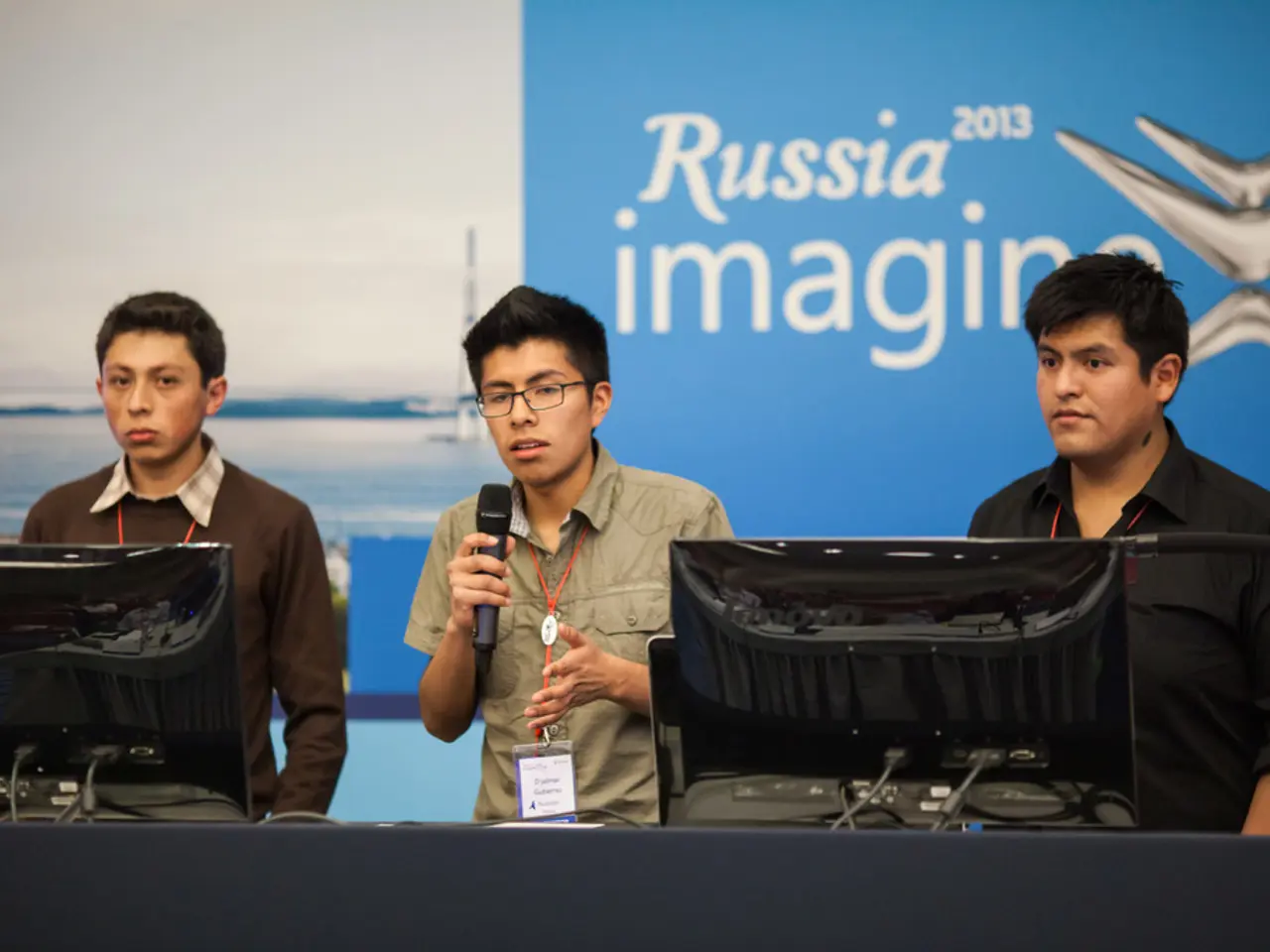Trump issues warning to Putin about potential severe repercussions
In a series of recent developments, world leaders have been engaged in discussions aimed at resolving the ongoing conflict in Ukraine.
Ukrainian President Volodymyr Zelensky has asserted that any questions regarding Ukraine's territorial integrity must take into account the will of the state, people, and the country's constitution. Meanwhile, French President Emmanuel Macron has proposed a trilateral meeting between President Donald Trump, Russian President Vladimir Putin, and Zelensky in Europe, preferably in a neutral country acceptable to all parties.
The Alaska Summit between Trump and Putin, however, ended without a deal on the Ukraine conflict or any territorial concessions. Putin did not agree to a ceasefire or pause in hostilities, and Russian forces continued attacks on Ukraine during the meeting.
Experts had hoped that Trump might forge a framework agreement, including a ceasefire with minor land swaps, non-recognition of Russian-held Ukrainian territory as Russian, recognition of Ukraine's sovereignty over the rest, limits on NATO's military presence, and gradual easing of sanctions. However, Putin maintained maximalist war aims demanding regime change in Kyiv and Ukraine’s demilitarization, making an agreeable deal very unlikely.
Despite Trump's intentions to get a ceasefire and peace process started, the summit's outcome reflected Putin's intransigence and refusal to make concessions. The meeting served mostly to signal the difficulties ahead, with US efforts now focusing on accelerating broader negotiations to end the war.
German Chancellor Friedrich Merz demanded that fundamental European and Ukrainian security interests be preserved during the Alaska Summit. He also stressed that the participants were in agreement on the assessment of the situation and the achievable goal for the summit.
If there is no progress in Alaska, Merz suggested that the USA and the Europeans must increase pressure on Russia. He also emphasized the importance of negotiations being part of a common transatlantic strategy.
The Europeans and Zelensky fear that Trump and Putin could agree on territorial concessions from Ukraine to Russia at the meeting. To address this concern, Ukraine must be at the table for any follow-up meetings, and a ceasefire must come first.
Trump has suggested the possibility of a meeting between Zelensky and Putin, contingent on their mutual agreement, after the teleconference with the Europeans. He also plans to inform Zelensky before notifying the European core group (Germany, EU Commission President Ursula von der Leyen, EU Council President António Costa, NATO Secretary General Mark Rutte, French President Emmanuel Macron, British Prime Minister Keir Starmer, Italian Prime Minister Giorgia Meloni, Finnish President Alexander Stubb, and Poland represented by Head of State Karol Nawrocki or Prime Minister Donald Tusk) about the meeting with Putin.
The Russian Ministry of Foreign Affairs has stated that the Alaska summit has the highest significance for international peace and stability in the world. They also expressed their desire to continue working towards normalizing bilateral relations, discussing all accumulated issues, from the Ukraine conflict to the obstacles for a normally functioning dialogue between the two countries.
In a surprising move, Merz used several rooms in the Chancellery for the international conferences, including the Chancellor's apartment, a secure soundproof room, and a converted video room in the library, for the unusual formats.
Amidst these developments, Trump has threatened Putin with "very serious consequences" if he does not agree to an end to the Ukraine war. The future of the conflict remains uncertain, but the international community continues to strive for a peaceful resolution.
War-and-conflicts continue to dominate global politics, as evidenced by the ongoing standoff between Russia and Ukraine. General-news outlets are closely monitoring discussions and meetings involving world leaders, such as the recent Alaska Summit, in hopes of finding a resolution to the conflict. Meanwhile, German Chancellor Friedrich Merz has underscored the importance of protecting Ukrainian and European security interests and advocated for a common transatlantic strategy to end the war.







